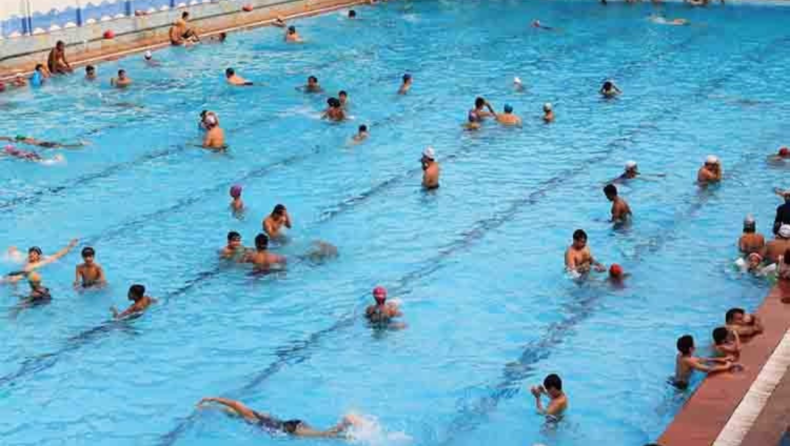England is experiencing an extreme water shortage. Car washing, filling swimming pools, maintaining ponds, and cleaning shops and offices could be banned. It would be to ban all non-essential use of water
England is facing a water shortage. So, filling public swimming pools, washing cars, maintaining ponds, and cleaning shops and offices could be banned.
The south and east of England, in particular, have not received enough rain. Despite the recent rainy season, the country’s rivers and reservoirs cannot be refilled.
For some water companies, non-essential use bans are being considered. A group is prepared of government bodies, water companies, and NGOs. Now, they will decide how to confront the drought situation.
Almost throughout the whole country, including London, Yorkshire, and a large part of the south and southeast of England, hosepipes are banned. This month, the next step could be put in place. It would be to ban all non-essential use of water.
Mainly, this would include a ban on washing non-domestic buildings and vehicles. Additionally, there are bans on filling swimming pools and ponds.
Throughout the recent droughts, this type of drastic measure has not been taken. Since 1976, England has faced its driest conditions.
In 1976, the government told households to reduce their water usage by half following 16 months of low rainfall. Furthermore, the companies are trying to apply for drought orders in September.
This includes Thames Water, Severn Trent Water, South West Water, Southern Water, South East Water, and Yorkshire Water.
England’s water crisis condition
To protect the public water supply, forceful measures might need to be taken. Otherwise, if dry conditions continue, it could be hugely risky for the country. Experts are not expecting enough rain to ease the dry weather.
When an area receives exceptionally little rain or snow, it is called a drought because it affects everything from the moisture in the soil to the water levels in rivers.
Even though droughts can occur naturally, scientists agree that human-driven climate change is increasing the likelihood of drought episodes.
The expert said, “The [three-month] outlook shows a risk of dry conditions continuing in the south and east of the UK, with little sign of the rainfall needed to end current drought conditions.”
At the National Drought Group meeting, farmers were represented by the National Farmers’ Union. They said that the lack of rainfall caused many crops to be seriously affected. Some farmers are sacrificing some crops to save other crops.
Due to the exceptionally dry spring and summer, England has been in what is known as a “prolonged dry weather” phase for some time.
Generally, when the reservoirs and rivers have less water, water companies get water from aquifers. But this year, these are also running dry.
The latest outlook from the UK Centre for Ecology and Hydrology says, “Groundwater levels in September are likely to be normal across northern aquifer areas and below normal further south (with exceptionally low levels persisting in some boreholes.) “
Moreover, it also states, “The three-month outlook suggests a similar picture, but with levels tending towards normal, away from the far south, although there is much uncertainty looking ahead into the recharge soon.”
This year, England experienced the driest conditions. Officially, most of the country is in a drought. Eleven of the fourteen Environment Agency areas have been given the status of drought.
Extremely dry and hot conditions have destroyed crops and fueled wildfires. This condition also increases the serious demand for water.
The extreme problem is hitting nearly the whole of Europe. In the last 40 years, the country has experienced a number of droughts. Less than 3% of the world’s water is suitable for drinking. Most of the water is locked up in ice caps and glaciers.
The researchers said, “Even in rich countries like the UK, the authorities are floundering to deal with the impact of the climate extremity.”
People are advised to take showers rather than baths. In some areas, water companies are urging households to save water. People are also being encouraged to turn off taps when washing dishes and brushing their teeth.
Swimming pools come in a range of sizes. The smallest standard size is generally 6 ft. wide. These types of pools can hold up to 3,000 litres of water. Filling these pools costs you £9.60 every time a person uses them.













